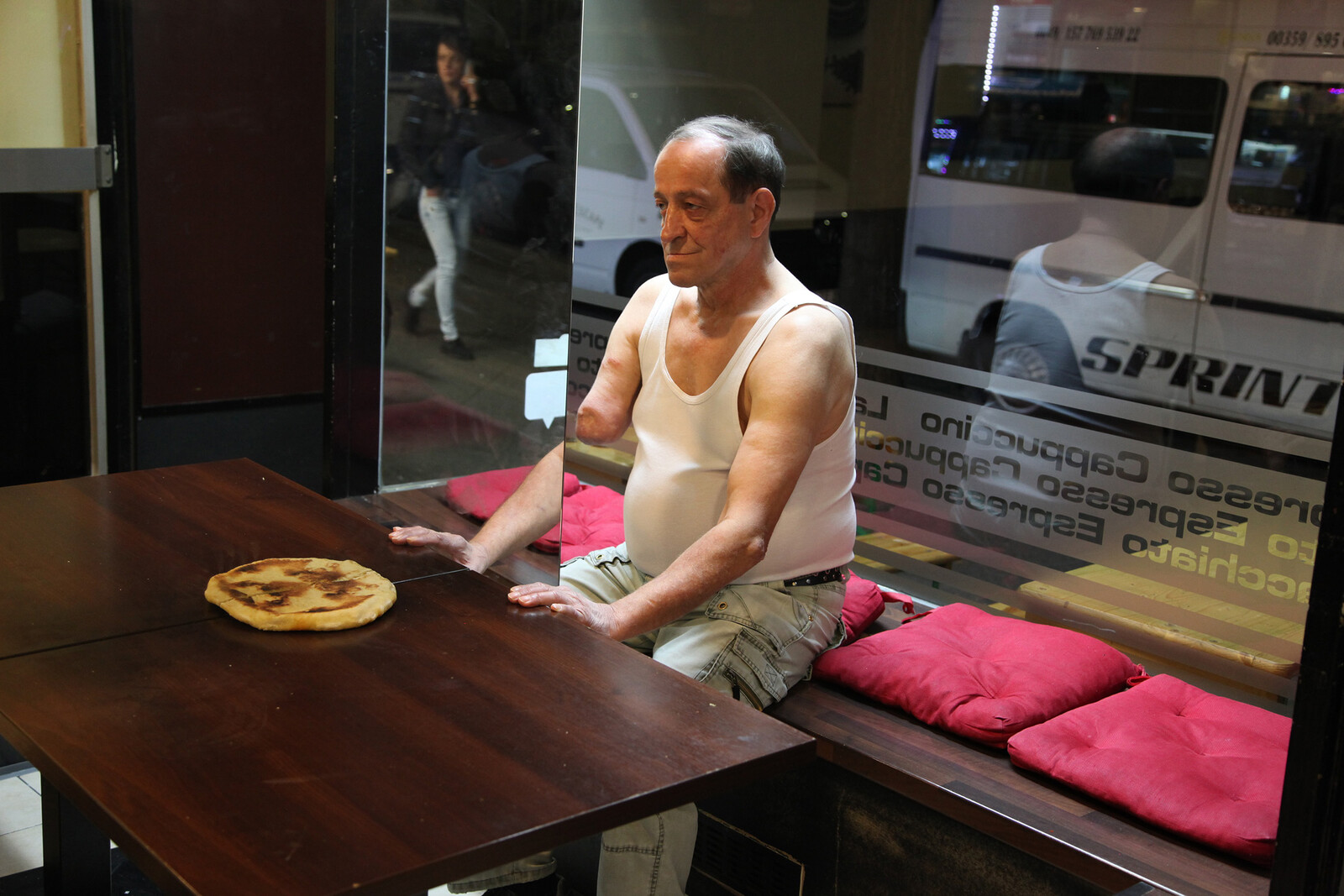Milstein Hall Auditorium
Milstein Hall Auditorium
114 Central Avenue
Ithaca, New York 14853
United States
Hours: Tuesday–Sunday 10am–5pm
T +1 607 255 6464
As part of his visit to Cornell’s Ithaca campus, Kader Attia will give an Artist’s Talk at Milstein Hall on September 24. A screening of his short film Reflecting Memory (2016), also at Milstein Hall, on September 25 will be followed by a roundtable discussion with the artist and members of the Cornell faculty and graduate school, including Samia Henni (Architecture), Marie Lambert (Comparative Literature), and Tracy McNulty (Comparative Literature), moderated by Iftikhar Dadi. These two events have been coorganized and cosponsored by Cornell’s Johnson Museum of Art, Institute for Comparative Modernities, and Department of Art. Both are free and open to the public.
Kader Attia’s work is currently included in how the light gets in, an exhibition about the movement of people across the globe and the welcome cracks that develop in our notions of borders, on view at Cornell’s Herbert F. Johnson Museum of Art (through December 8, 2019).
Kader Attia was born in 1970 and grew up in Paris and Algeria. Preceding his studies in Paris and Barcelona, he spent several years in Congo and South America.
The experience with these different cultures, the histories of which over centuries have been characterised by rich trading traditions, colonialism, and multiethnic societies, has fostered Attia’s intercultural and interdisciplinary approach of research. For many years, he has been exploring the perspective that societies have on their history, especially as regards experiences of deprivation and suppression, violence and loss, and how this affects the evolving of nations and individuals—each of them being connected to collective memory.
His sociocultural research has led Attia to the notion of Repair, a concept he has been developing philosophically in his writings and symbolically in his oeuvre as a visual artist. With the principle of Repair being a constant in nature—thus also in humanity—any system, social institution, or cultural tradition can be considered as an infinite process of Repair, which is closely linked to loss and wounds, to recuperation and reappropriation.
His work has been shown in group shows and biennials such as the 12th Shanghai Biennial; the 12th Gwangju Biennial; the 12th Manifesta, Palermo; the 57th Venice Biennial; dOCUMENTA(13) in Kassel; Met Breuer, New York; Kunsthalle Wien; MoMA, New York; Tate Modern, London; Centre Pompidou, Paris; and the Solomon R. Guggenheim Museum, New York; among many others. Notable solo exhibitions include The Museum of Emotion, the Hayward Gallery, London; Scars Remind Us that Our Past is Real, Fundacio Joan Miro, Barcelona; Roots also grow in concrete, MacVal in Vitry-sur-Seine; The Field of Emotion, the Power Plant, Toronto; Museum of Contemporary Art, Sydney; Repairing the Invisible, SMAK, Ghent; Museum of Contemporary Art, Sydney; Sacrifice and Harmony, Museum für Moderne Kunst, Frankfurt/Main; The Injuries are Here, Musée Cantonal des Beaux Arts de Lausanne; Contre Nature, Beirut Art Center; Continuum of Repair: The Light of Jacob’s Ladder, Whitechapel Gallery, London; and KW Institute for Contemporary Art, Berlin.
In 2016, Kader Attia was awarded with the Marcel Duchamp Prize, followed by the Prize of the Miró Foundation, Barcelona, and the Yanghyun Art Prize, Seoul, in 2017.


